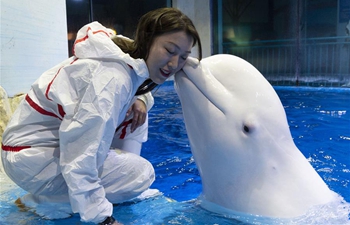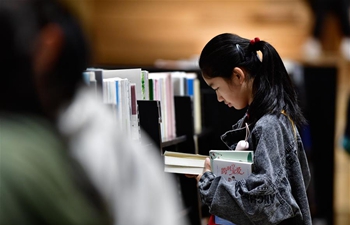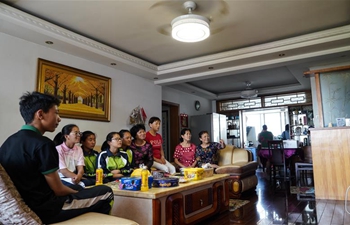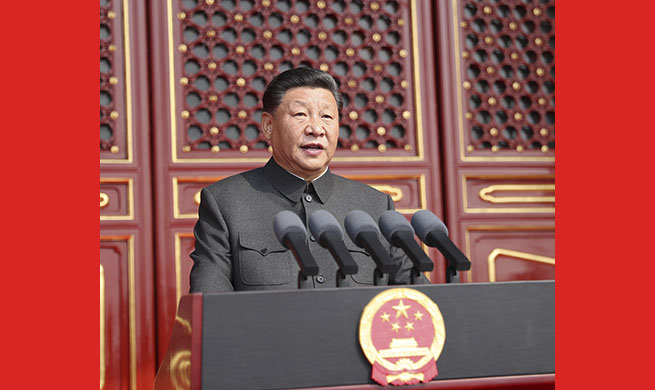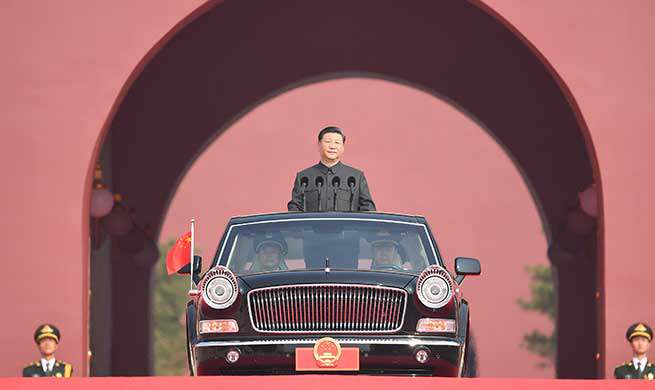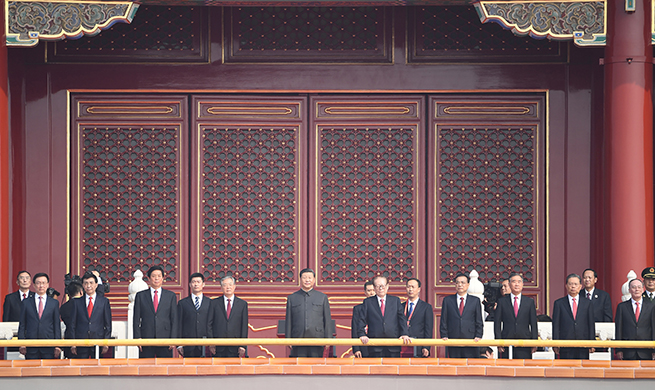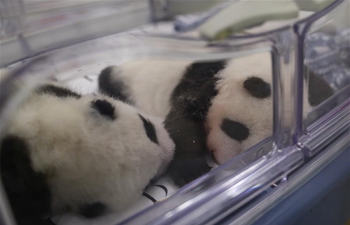TOKYO, Oct. 4 (Xinhua) -- Japanese Prime Minister Shinzo Abe delivered a policy speech outlining his goals ahead in an extraordinary Diet session convened on Friday and to end in December, marking the first such assembly since the upper house election in July.
Abe, leader of the ruling Liberal Democratic Party (LDP), said that the economy remains his top priority amid a consumption tax increase which came into effect on Tuesday here and other domestic downside pressures facing the government's balance sheet including ballooning social welfare costs.
Japan's rapidly aging society, which is steadily seeing social security outlays increase, in twine with the nation's shrinking population, as the birth rate continues to decline, were also highlighted by Abe as being a major focal point looking ahead.
The Japanese leader said that in order to ensure that the social security system can cope with the nation's ever-increasing demographic crisis, which is also slowly hollowing out Japan's workforce, a strong economy is paramount.
This, the prime minister described as being the country's "biggest challenge."
Abe also told the Diet that in terms of outside influences on Japan's economy, such as ongoing and more recent trade issues, as well as uncertainty surrounding Britain's planned departure from the European Union, that these were situations that would be tracked and dealt with as necessary.
"Should downside risks become evident, we will take flexible and sufficient steps without hesitation to make sure that the economy is on a firm growth path," the Japanese leader said.
In the first parliamentary session since a Cabinet reshuffle last month aimed at bolstering public support and ensuring that his key political allies remain in close quarters, Abe also said lawmakers should debate his legacy-led goal of amending Japan's Constitution.
"Let us fulfill our responsibility as Diet members to the people," Abe told the session, with reference to the politically and socially divisive issue of changing Japan's pacifist charter for the first time since World War II.
But not having a two-thirds majority of supporters for changing the Constitution in the upper house needed to begin the process of revision, which overall requires a two-thirds majority in both houses of Japan's bicameral parliament and then to pass a public referendum before becoming law, means Abe's cherished goal may be an uphill struggle.
Japan's ruling coalition headed by Abe failed to achieve a two-thirds majority in July's upper house election, which has presented a serious stumbling block for pro-constitutional amendment forces.
Having fallen short of the requisite number of seats to smoothly push ahead with calling for the Constitution to be amended and taking it to the public for a simple majority referendum, the prime minister will now, to continue his legacy-led plight, need to garner the support from a reluctant public, and prior to that disinclined opposition parties.
These include the main opposition Constitutional Democratic Party of Japan (CDPJ), and while the prime minister has called for more dialogue on the matter and for "crossing the border" between ruling and opposition parties, CDPJ leader Yukio Edano said that his party is aiming to "create an environment in which we can offer voters the choice of a change in government in the next lower house election."
In terms of diplomacy, Abe also said in his policy speech that he still hopes to meet with the Democratic People's Republic of Korea's (DPRK) leader Kim Jong Un "without preconditions."
Abe, set to become Japan's longest-serving prime minister in November, also expressed a strong desire to continue to lift relations with China to "a new level" as ties between both countries have become notably warmer.
Conversely, as for ties with South Korea and amid an ongoing dispute over issues of forced wartime labor during Japan's colonization of the Korean Peninsular during the war that has spilled over into a tit-for-tat trade dispute, Abe said in his address that South Korea should "keep promises between states."



